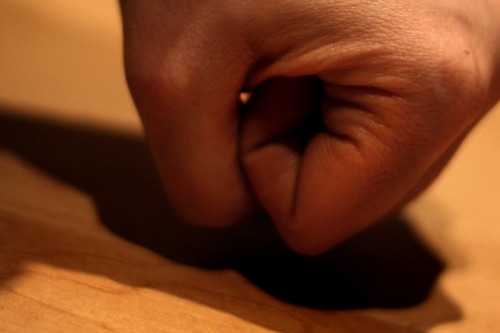1. Blaming Bad Weather on Angry Spirits

Back in the day, a sudden thunderstorm during your picnic might be chalked up to supernatural disapproval. Farmers especially were prone to reading weather as a sign from above, sometimes even postponing planting. With the internet and instant radar maps, people began checking apps instead of making offerings. Wi-Fi replaced folklore with Doppler imagery, and the spirits got fewer complaints.
Now, instead of whispering about who might have angered the weather gods, we just refresh a forecast. That immediacy cuts down on the mystery factor, which is what kept many weather-based superstitions alive. When you can see a raincloud’s GPS coordinates, it feels a lot less personal. The drama of divine punishment loses out to the science of satellite data.
2. Hanging Horseshoes for Luck Above the Door

For centuries, Americans nailed horseshoes above their front doors, believing they kept evil spirits out. Iron was thought to ward off bad luck, and the crescent shape had symbolic power. But when Wi-Fi routers became household essentials, people stopped worrying about the metal charm over the door. They were more concerned with signal strength than spiritual defense.
You’ll still spot horseshoes in rural homes, but in cities, they’re more decor than defense. The rise of smart home devices shifted focus to security cameras, motion sensors, and firewalls—digital, not magical. Good luck became something you Googled tips for rather than nailed in place. The talisman lost to the tech hub.
3. Avoiding the Number 13 in Hotel Rooms

Skipping the 13th floor or avoiding Room 13 used to be serious business for many hotels and travelers. People feared the number brought misfortune, so builders skipped it entirely. But with booking sites showing floor plans, room photos, and reviews instantly, the number lost its mystique. Wi-Fi made it harder to keep those “missing” floors a secret.
Travelers started caring more about the Wi-Fi password than the room number. If the connection was good, no one minded sleeping in 1313. When the focus shifted from superstition to streaming, 13 got downgraded to just another number. You can thank broadband for saving some elevator buttons from early retirement.
4. Covering Mirrors During Storms

Some Americans once believed lightning could be drawn to mirrors during a storm, so they’d cover them up. The idea was part spiritual, part pseudoscience, linking shiny surfaces to bad omens. Weather websites and electrical safety guides slowly pushed the belief aside. People stopped draping sheets over the bathroom mirror once they learned lightning had no interest in their reflection.
Instead, during a thunderstorm, the modern reflex is to unplug electronics. Thanks to online safety tips, people swapped folklore for surge protectors. A storm went from being a mystical danger to a practical inconvenience. The Wi-Fi stayed on, and the mirrors stayed uncovered.
5. Tossing Salt Over Your Shoulder

Spilling salt was once thought to invite bad luck, so the quick fix was tossing a pinch over your left shoulder. It was a mix of Old World belief and a dash of culinary drama. But with kitchen mishaps now livestreamed on TikTok, the habit started to feel more like a mess than a safeguard. Wi-Fi-connected recipes made salt something to measure, not throw.
The superstition faded as people became more skeptical and data-driven in the kitchen. You can find fact-checked explanations in seconds—no spirits, just clumsiness. Salt went back to flavoring food, not warding off bad vibes. The broom got one less job.
6. Whistling Indoors Brings Bad Luck

Some Americans once believed whistling indoors could summon misfortune or even invite spirits. It had roots in maritime lore, where whistling was thought to “whistle up a storm.” But the moment you could ask Google whether that was true, the myth cracked. Wi-Fi didn’t just bring facts—it brought confidence to whistle while you work.
Now, if someone tells you to stop whistling, you can fact-check them in under ten seconds. The belief quietly faded in favor of “it’s just annoying” as the main objection. Cultural superstition lost out to personal preference. That’s progress—unless you’re the person stuck listening to the tune.
7. Holding Your Breath Past Cemeteries

Many kids grew up believing you had to hold your breath when passing a graveyard, or the spirits might get in. It was a dare, a ritual, and a test of lung capacity. But smartphones in the backseat became more interesting than roadside superstition. Wi-Fi turned ghost-avoidance into Google Maps scrolling.
Once urban legends could be debunked in real time, the game lost its bite. The cemetery became just another location pin, not a spiritual danger zone. Kids were too busy checking notifications to notice they’d driven past one. The dead stayed put, Wi-Fi or not.
8. Planting by the Signs of the Moon

For generations, farmers planted crops according to moon phases, believing certain days produced better yields. It was a mix of tradition and trial-and-error wisdom. But with agricultural extension websites and real-time soil data, lunar gardening fell out of favor. Wi-Fi didn’t just replace the moon—it replaced the calendar.
Farmers began trusting climate models and weather apps over celestial cycles. While some still swear by the old ways, the majority now lean on precision agriculture tools. The superstition survives as a quaint tradition, not a farming necessity. The harvest comes by forecast, not folklore.
9. Knocking on Wood to Prevent Bad Luck

Knocking on wood was a reflex when you didn’t want to “jinx” yourself. The act supposedly warded off misfortune by calling on protective spirits in the wood. Once search engines revealed it was just a cultural habit with no mystical backing, it started to feel optional. Wi-Fi turned the knock into a casual joke, not a ritual.
Now, people type “knock on wood” in text messages more than they actually do it. The superstition has gone digital, surviving as a meme rather than a belief. You can thank fact-checking for demoting it from a protective measure to a punchline. Trees everywhere breathed a sigh of relief.
10. Eating Black-Eyed Peas for New Year’s Luck

For many Americans, black-eyed peas on New Year’s Day were thought to bring prosperity. It was a tradition rooted in Southern culture and Civil War history. But with food blogs and nutrition sites offering endless “lucky” recipes, the peas lost their monopoly. Wi-Fi made January 1st menus more about trends than tradition.
The superstition still exists, but it’s competing with kale salads, smoothie bowls, and whatever TikTok is pushing. People who skipped the peas and had a good year anyway became walking counterarguments. As recipes diversified, the old belief got diluted. The luck got shared with quinoa.
11. Not Washing Clothes on New Year’s Day

Some Americans believed washing clothes on January 1st could “wash away” a family member in the coming year. It was a quiet but widespread superstition, especially in the South. But the internet flooded with myth-busting lists every December, eroding the belief. Wi-Fi gave people permission to run the laundry without fear.
Now, the only worry is whether the laundromat’s open. The day is more about resetting calendars than guarding against tragedy. The superstition has been demoted to a trivia factoid. Clean clothes beat vague cosmic warnings.
12. Tucking a St. Christopher Medal in Your Car

St. Christopher, the patron saint of travelers, was once a must-have charm for road trips. Parents and grandparents swore it kept drivers safe. But with GPS, real-time traffic updates, and roadside assistance apps, the emphasis shifted from talismans to technology. Wi-Fi took the wheel, so to speak.
Now, safety means seatbelt alerts and collision sensors. The medal might still hang from the rearview mirror, but it’s nostalgia, not a necessity. Superstition gave way to algorithms and airbags. The journey’s blessings now come from satellite signals.
This post 12 American Superstitions That Disappeared When Wi-Fi Arrived was first published on American Charm.


